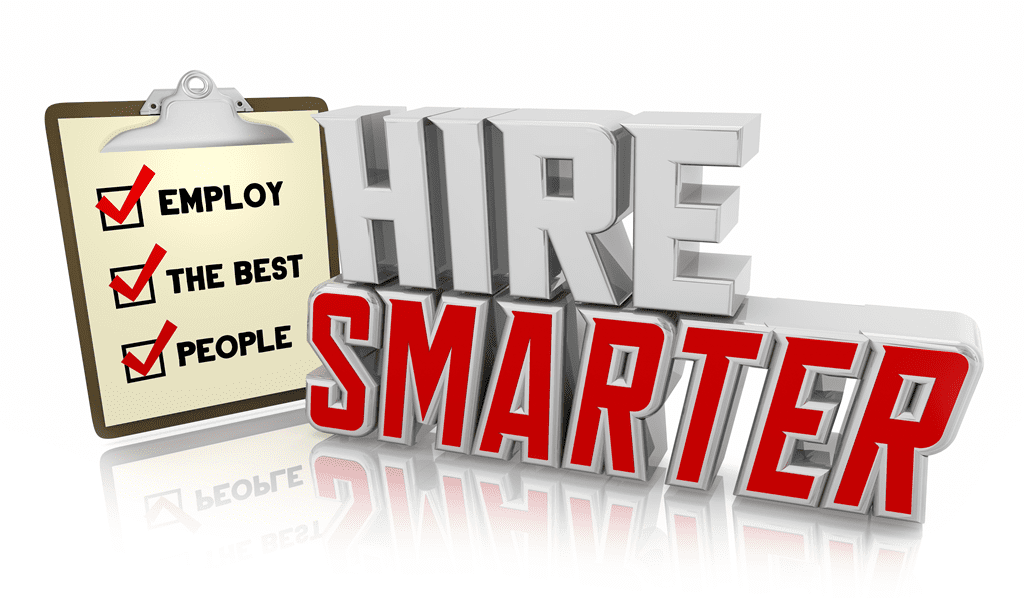Best Practices in Hiring Staff in the Refinishing Industry
Your most important business decision
Your refinishing business is growing, and you need more help – but hiring can be tough. Wouldn’t it be nice if there was a foolproof formula to ensure every new hire would be a perfect fit? Unfortunately, there isn’t.
But you can improve your chances of finding the perfect hire by writing a great job description and asking the right interview questions. In this article, we will review the important steps and considerations in hiring. We’ll focus on hiring refinisher techs.
Investing in Your Refinishing Team
Every new employee you hire is an investment. You will need to invest time, money, and energy in them before they become a profitable member of your team. This investment involves onboarding and training. Onboarding is all the steps you take to get them officially hired, introduced to your team, and familiar with how your business works. Training includes all the skills and knowledge they will need to be productive, effective, and safe when finishing tubs, counters, and floors.
We are introducing this topic of training now because how you hire and who you hire will affect your onboarding and training investment. If you are lucky enough to hire a tech who already has successful experience refinishing tubs counters and floors, you are blessed. This means that your investment, onboarding, and training will take less time – and money. It also gives you increased confidence that they will be successful in the role.
A Starting Point When Hiring
This article is an overview of key considerations for hiring staff for your refinishing business. While there is more to discuss about interviewing, reference checks, compensation, and other topics, this article is an overview of the main factors to remember as you search for new employees. Also, don’t be afraid to ask for advice from other refinishing business owners in your peer group – they can be a great asset to you.
The key steps in the process we’ll discuss are:
- • Planning and Organizing
- • Marketing the Position
- • Screening Candidates
- • Screening Criteria and Interviewing
- • Making the Selection Decision
Planning & Organizing for Hiring New Staff
Job Description
Typically, the process of hiring a new refinisher begins with a good job description. An effective job description talks about skills and capabilities. Break down each part of the refinishing project from start to finish, from meeting the homeowner to final cleanup and project closeout. Each one of these key steps requires different personal skills, product knowledge, and technical skills. When you’re screening and interviewing, you will want to identify how many of these abilities each candidate has. No candidate will be perfect but the more of these elements they can demonstrate the less you need to train, coach, and teach them later.
The Job Ad
- • The purpose of the job ad is to attract qualified candidates and discourage unqualified candidates. Your ad should talk about:
- • The freedom to work outside of an office or warehouse
- • The chance to work with their hands
- • The satisfaction in doing beautiful, high-quality work that homeowners love
- • The opportunity to learn a highly valued technical skill
The ad may also talk about the sharing in profitability if that is part of your business structure.
The other part of the job posting lists the physical nature of the job, irregular hours, and the demands for high-quality work. The ad may also ad may say “If you do not have experience/skills in X, Y, or Z you are not a good candidate and should not apply.”
Marketing the Position
To market the position, you must write a job ad or post. This is a document or description that you will make visible in many places, including job boards like Indeed, LinkedIn, or local job boards, emailing friends, family, and colleagues, sharing with networking groups, and other places. You should be thoughtful and have a plan to spread the word about your job opening.
Don’t keep the fact that you are looking for good employees a secret. When you have a clear job ad, send it out to your network and put it on appropriate job boards and websites. Promote it on your website. Get the news out there. Believe it or not, someone is looking for this great opportunity right now. Help them find it.
You may find some great candidates among family friends, co-workers, and past employers. Often the best candidates will come from your warm network of family, friends, co-workers, and former employers. Make sure they know about your need for a new team member.
Screening Candidates
A great hire is a wonderful addition to your team and a building block for your future. But a poor hire is a drain on your time and money. Once you have a good ad and have successfully marketed the position then you should expect to get some applicants.
Some applicants may call you. Some may send an email. Be aware that some folks who are conscientious hard workers, good with their hands, and good candidates may not use email. Stay open-minded.
Some of the screenings will take place over the phone and always, most importantly face to face. You will make these screening decisions based on what they say, what you see, how they show up, and follow-up. Sometimes their words and actions will give you obvious signs they will not be a fit. Other times after a good conversation you will just need to trust your gut.
Candidates to Disqualify
Here are the people you need to eliminate:
1. Eliminate people who lack the skills, experience, or background for the position.
2. Eliminate people who aren’t honest about their experience or skills. (It happens.)
3. Eliminate those who are unreliable, undependable, have a poor work ethic, or can’t keep promises. These may be the most important criteria as they can cost you the most time and money.
Don’t Rush, Be Selective
It is important to get a good number of candidates for each position. If you have only a few candidates, you might mistake a weak or mediocre candidate for a good one. If you are so fortunate that a respected colleague knows what you need and refers a quality candidate to you with a good recommendation, then you may not need so many applicants.
Good Candidates are Screening You
Remember: Good people don’t quit bad jobs, they quit bad bosses. When attracting good employees, YOU are a critical ingredient in attracting them. When a good candidate gets the sense that you are dependable, reliable, and have high integrity they will want to work for you. All the small things you do during the interviewing process show the candidate what kind of boss you will be.
Screening Criteria & Interviewing
There are no perfect candidates. Some will need more training and management than others. Do not consider every requirement below as mandatory; decide in advance which ones are non-negotiable deal-breakers. The most important criteria will be reliability, dependability, and integrity. If you find a person with a high character and a strong work ethic who wants the job, that is 80% of the battle. However, these qualities should also be assessed when considering adding someone to your team:
Job History
If a candidate has a history of a new job every year, perhaps even changing to different fields without any growth, it’s a good sign they will repeat that pattern with you. That job history deserves a thoughtful conversation with the candidate. It is a “potential” indicator of weakness in dependability, reliability, or character.
Physical Work
Refinishing work is very physical. It involves loading and unloading equipment and supplies, often carrying them upstairs. Refinishing a bathroom requires moving around tight quarters to prep and mask the surfaces. Many people are not used to that type of activity, so it is fair to ask about their willingness and ability to do this physical work.
Quality
In refinishing, quality IS the product. Homeowners and building managers have high expectations and may inspect the refinishing with a careful eye. So, your hire should have excellent attention to detail. This will be evident if they show up on time, prepared and appropriately dressed for their interview. Someone who arrives late, unprepared for the interview, and sloppily dressed will show up that way for your customer.
Working with Their Hands
As a refinisher, you understand the importance of your crew members being able to work with their hands. Some candidates have worked in carpentry, plumbing, electrical work, or manufacturing and some may simply have hobbies where they use their hands a lot. Ask about their experiences working with their hands. Instead of simply asking what they did, ask for details, what specific skills they used, and areas where they excelled. Qualified candidates will often share more detail and depth on those topics.
Home Services
You should assess candidates’ experience surrounding going into someone's home to do a home improvement project. They need to understand the protocols and professional manners needed when working in someone's house. Small things like properly greeting the homeowner, taking off their shoes, and asking permission to see the tub are important. These skills also include things like explaining project details to the homeowner — what to expect, how long it will take, and what support the homeowner may need to provide for the technician.
Some candidates have done this kind of work before, so may be well-versed in proper protocol and have well-developed people skills.
They Want the Job
When you have spoken to a candidate for a bit and have learned about them, ask the question, “Why would you want a job like this?” You should sense an authentic interest in doing this kind of work and working with you in their response. Enthusiasm is a very positive sign.
Making the Hiring Decision
No algorithm guarantees a great employee every time you hire. Your best shot at getting this right is to have a good job description, and a thorough checklist of desired skills, experiences, and character attributes. Ask lots of good questions so both the good and poor candidates reveal themselves during the interview.
After you have done your due diligence, it’s still smart to trust your gut. It’s usually right.




